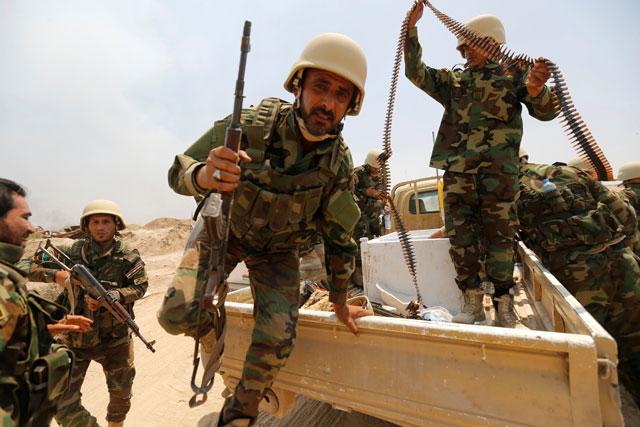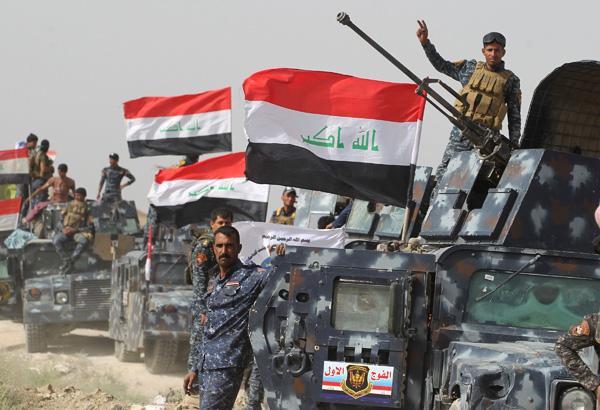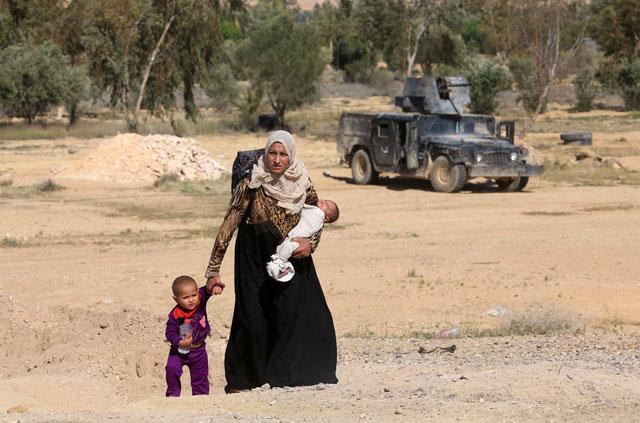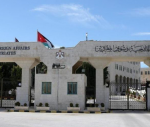You are here
Fallujah refugees say Daesh uses food to enlist fighters
By Reuters - Jun 08,2016 - Last updated at Jun 08,2016
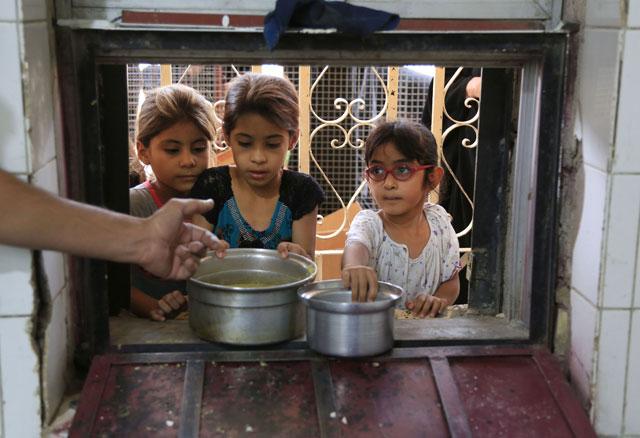
Girls receive free food for their families distributed foriftar, the evening meal breaking the Ramadan fast, at the Abdul Khader Al Kilani Mosque in Baghdad, Iraq, Wednesday (AP photo)
GARMA, Iraq — Iraqis who fled Daesh-held Fallujah as government and allied forces advanced on the city said they had survived on stale dates and the militants were using food to enlist fighters whose relatives were going hungry.
Daesh militants have kept a close guard on food storage in the besieged city near Baghdad that they captured in January 2014, six months before they declared a caliphate across large parts of Iraq and Syria.
The militants visited families regularly after food ran short with offers of supplies for those who enlisted, said 23-year-old Hanaa Mahdi Fayadh from Sijir on the northeastern outskirts of Fallujah.
"They told our neighbour they would give him a sack of flour if his son joined them; he refused and when they had gone, he fled with his family," she said.
"We left because there was no food or wood to make fires, besides, the shelling was very close to our house."
She and others interviewed in a school transformed into a refugee centre in Garma, a town under government control east of Fallujah, said they had no money to buy food from the group.
The Iraqi government stopped paying the salaries of employees there and in other cities under Daesh control a year ago to stop the group seizing the funds.
Fayadh escaped Sijir on May 27, four days after the government offensive on Fallujah began, with a group of 15 relatives and neighbours, walking through farmland brandishing white flags.
Most of the 1,500 displaced people who found refuge in the school in Garma were women and children, because the army takes men for screening over possible ties with Daesh. Fayadh said she was waiting for news of her two brothers who were being investigated.
Human shields
Prime Minister Haider Al Abadi said last week the offensive had slowed to protect tens of thousands of civilians trapped in Fallujah with limited access to water, food and electricity.
Fayadh said the situation in the city was very difficult. "The only thing remaining in the few shops open was dates, old, stale dates and even those were very expensive," she said.
Azhar Nazar Hadi, 45, said the militants had asked her family to move from Sijir into Fallujah itself, a clear attempt to use them as human shields.
"We hid," she said. "There was shooting, mortars and clashes, we stayed hidden until the forces came in" and escorted them out to the refugee centre.
The militants took hundreds of people, along with their cattle, with them into Fallujah, Hadi said.
"Life was difficult, very hard, especially when we stopped receiving salaries and retirement pensions.
"The last seven months we ran out of everything and had to survive on dates, and water," she said. "Flour, rice and cooking oil were no longer available at an affordable price."
A 50kg sack of flour cost 500,000 dinars ($428.45), almost half an average Iraqi employee's month salary.
Abadi ordered the offensive on Fallujah, which lies 50km west of Baghdad, after a series of bombings claimed by Daesh hit Shiite districts of the capital, causing the worst death toll this year.
Between 500 and 700 militants are in Fallujah, according to a US military estimate. The Iranian-backed Shiite militia coalition that is supporting the Iraqi army offensive on the city says the number of Daesh militants there is closer to 2,500.
The United Nations says about 50,000 civilians remain trapped in Fallujah, which has been under siege since December, when the Iraqi army recaptured Ramadi, the capital of Anbar province to the west.
When Hadi was asked what Daeshmilitants had been telling civilians in Fallujah, it was her six-year old child who answered, reciting the Koranic verse: "Be patient, God is with those who are patient."
Related Articles
BAGHDAD — Iraqi government forces fought Daesh militants near Fallujah on Monday and bombarded central districts at the outset of an offensi
BAGHDAD — The Daesh terror group is preventing people from fleeing Fallujah amid a military operation to recapture the city west of Baghdad,
BAGHDAD — Human Rights Watch (HRW) on Thursday called on Iraqi forces besieging the Daesh-held Fallujah to allow aid to reach tens of thousa



